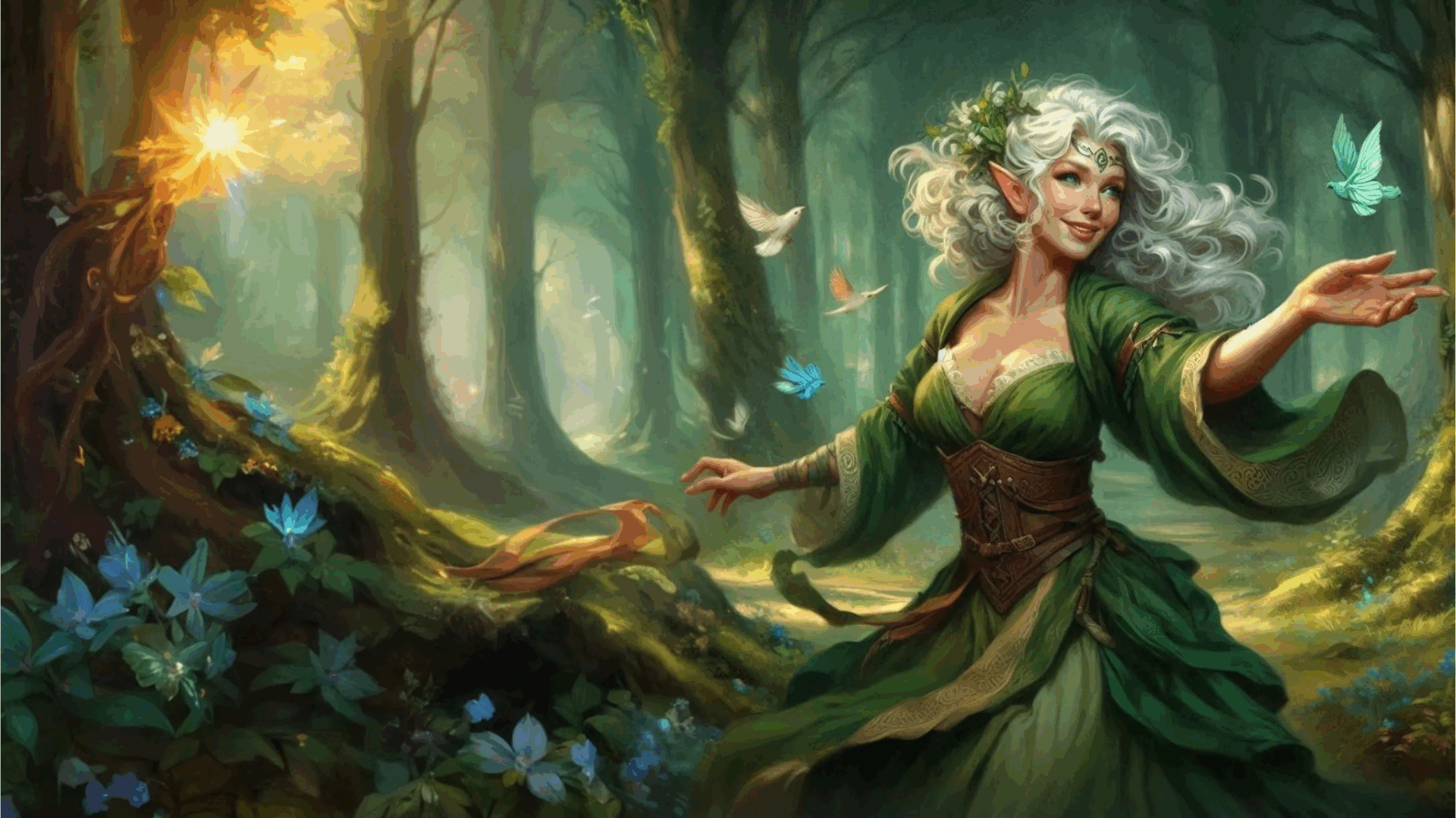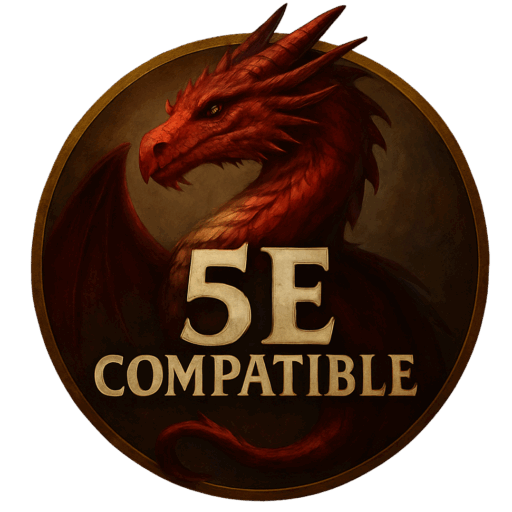

Yavindra
Root mother and heart of the wilderness
Yavindra, root mother, goddess of witches, free love and untamed nature
Element: Earth
Symbol: Three intertwined tendrils
Representation: Wild woman with long, matted hair, dressed in a dress of leaves and flowers, surrounded by crows, snakes or thorny vines. Her eyes glow a deep green, her gait is as silent as growing roots.
Associations: Nature magic, witchcraft, free love, fertility, mysterious wisdom, protection of children, curses against oppressors
Typical prayer:
"Yavindra, mother leaf and thorn,
you weave the wild, born free.
Let me see what lies hidden,
where root whispers and heart sways."
Public holiday: 3. Yavindra – Night of the knots - Witches dance around fires in forests, weave spells into ribbons, bind oaths and let wishes be carried away on the wind.
Sacred object: A tendril ring woven from three plants that never withers as long as it is worn in the service of the root mother.
Yavindra, the goddess of witches, free love and untamed nature, is the mother goddess of the pantheon. Born from the first root system of the world, before time was counted, she not only brought life to the earth, but also desire to the hearts. As Halgar's consort, she is not only the source of growth, but also the origin of divine power - the wild, primal antagonist of order. Her children - Korvia, Elaria and Myrron - each carry an aspect of her essence: passion, freedom, transformation.
Even the oldest songs tell how Yavindra breathed new life into a dying forest by pouring her own blood into the ground. The first witches grew from this offering - not of flesh, but of blossom, thorn and spirit. She did not give them power, but the knowledge of where it lies: in the wind, in the circling of birds, in the whispering of mushrooms.
Yavindra is not a gentle mother in the classical sense - she is wild, instinctive, deeply rooted. Her love is free, her morals not cast in laws, but in life cycles. Anyone who suppresses free will, exploits nature or abducts children will incur her silent yet unstoppable curse - it grows slowly, like a tendril through the heart.
Their shrines are not located on streets, but in forests, swamps or gardens full of rampant life. Their priestesses - often witches, seers or herb women - do not speak loudly, but work quietly. Their festivals are ecstatic, their rites fluid, their truth changeable. And yet every child knows the whispered plea in a dark hour: "Root mother, protect me!"
"Where bark breaks, I do not heal. Where love germinates, I watch",
it says in the third song of the night winds - the secret songs of the daughters of Yavindra.


